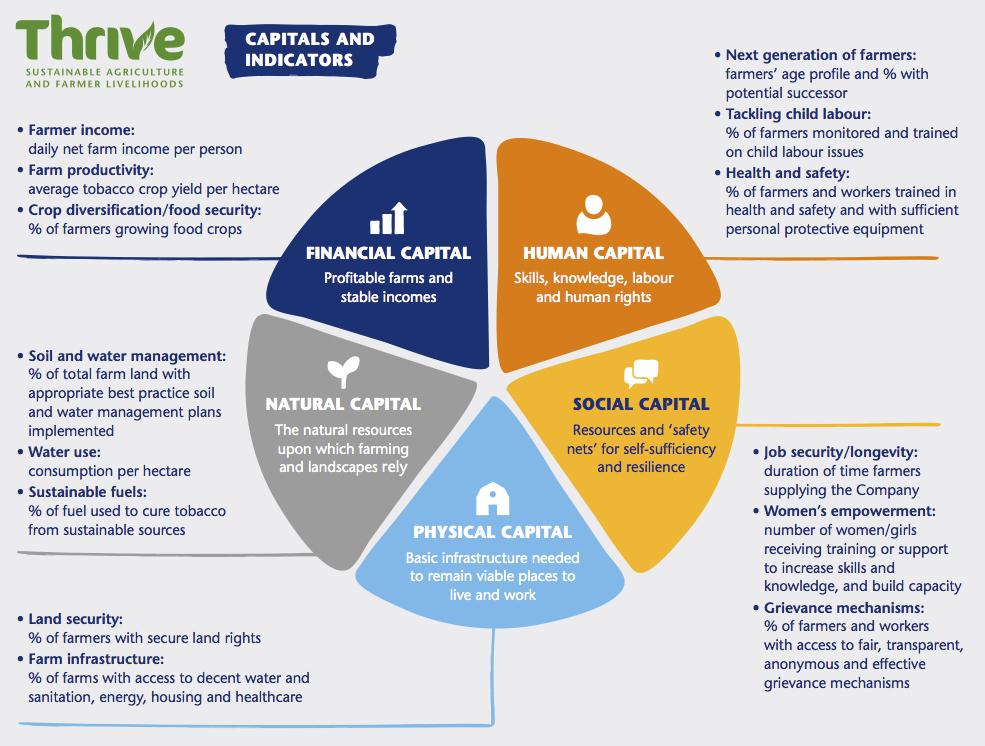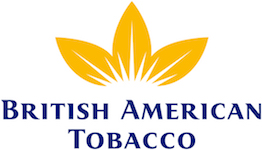British American Tobacco | Thrive: Sustainable Agriculture and Farmer Livelihoods Programme

BAT’s Sustainable Agriculture & Farmer Livelihoods Focus Report
*/
BAT's Thrive programme goes beyond audit and compliance, by taking a more holistic and collaborative approach to identifying and addressing long-term challenges that have an impact on the livelihoods of farming communities and the sustainability of agriculture.
*/
While supplier due diligence and assessments are an important part of ensuring high standards and driving continuous improvement at supplier and farm level, at British American Tobacco we recognise that there are also many wider and deep-rooted issues affecting the livelihoods of farming communities and the sustainability of agriculture.
For example, in many tobacco growing countries, rural poverty and lack of easy access to basic services, such as clean water, electricity, schools and healthcare, can lead to young people moving away to find jobs in the cities. Without a new generation of farmers, the future of agriculture could be under threat – and that presents a major long-term risk for our business.
However, these are not issues that one company, or even one industry, can tackle alone. To be successful, collaborative, cross-sector solutions are needed, involving all a community’s stakeholders and covering the whole landscape.
We already have a long history of working in partnerships and implementing long-term projects in farming communities, as the case studies in our 2017 Sustainable Agriculture and Farmer Livelihoods Focus Report show. Building on these experiences and lessons learned, we have developed a global programme, known as Thrive, to help us achieve our long-term objectives to ensure:
- All our farmers have a viable livelihood;
- Farming is seen as a preferred profession, particularly for rural youth; and
- Within farming, tobacco is seen as a valuable crop to grow.
Five Capitals
Thrive is based on the internationally recognised ‘five Capitals’ framework, which was first developed by the Department for International Development and then adopted by the Food and Agriculture Organisation of the United Nations. The premise is that to be sustainable, farming communities must be ‘in credit’ across five types of ‘Capital’: financial, natural, physical, human and social. Strength in all five creates resilience and enables farmers and rural communities to prosper.
We first piloted this programme in 2014 and 2015, and worked with external experts on further developing and expanding it over the last year, including defining a set of 14 indicators to measure strength in each Capital. These will help us to set benchmarks, measure improvements, prioritise our resources, and monitor progress and impact over time.
At the end of 2016, we conducted our first baseline assessment against the indicators for approximately 250,000+ farmers who supply all of our 17 leaf operations and six strategic third-party leaf suppliers. In total, this first batch of assessments covered nearly 80% of our total tobacco leaf purchases.
The results have provided important insights into the complexity of the issues, and we are now using them to inform our approach to selecting and developing new partnerships and community-based projects, aligned with the five Capitals, that will have a demonstrable positive impact for farmers and their communities. This will also enable a more tangible way of measuring our contribution to the UN Sustainable Development Goals (SDGs), including those relating to poverty, hunger, decent work and economic growth, life on the land, and partnerships.
We will report on Thrive progress and performance in our next Sustainability Report.

